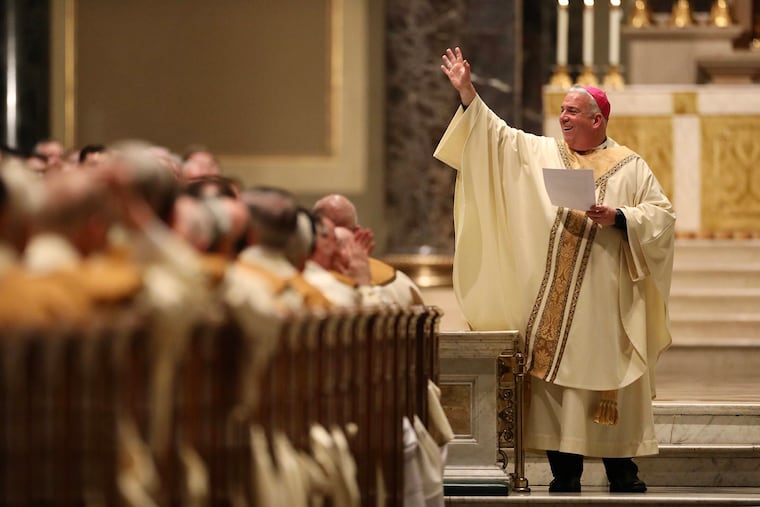Don’t look to Archbishop Nelson Pérez for political leadership | Christine Flowers
It may be inevitable then that Philadelphia’s new archbishop, Nelson Pérez will become a political figure. But I sure hope not.

Gone are the days when we looked at our priests as amiable and benign Father Flanagans who tended to our souls when they weren’t playing baseball. Now, the prelates of my church are forced to act on a political stage, and we expect them to have political opinions.
Take for example Pope Francis’ papacy. The Holy Father has taken an increasingly politicized role on hot-button issues. From immigration, to health care, to climate change, to the role of women in the church, to human sexuality, and even the tragedy of the sex-abuse scandal, Catholics and non-Catholics alike tend to view Pope Francis’ pronouncements through a partisan lens.
It may be inevitable then that Philadelphia’s new archbishop, Nelson Pérez, who spent three decades in Philadelphia before ministering in New York and Ohio, will become a political figure. But I sure hope not.
For Philadelphia Catholics, there is much to celebrate in the homecoming of a beloved man, someone whose return was embraced with something beyond the usual good wishes for a new prelate. There was a visceral feeling of love in the air as Archbishop Pérez was installed this week as the leader of the Philadelphia Archdiocese, one of the most important in the country, if not the world. I work with immigrants from Mexico and Central America, and have seen how excited they are by Pérez’s arrival. They have un amigo de corazón who speaks their own language.
Plus, I can’t help but smile whenever I see Pérez’s own “Pinch me!” joy in being back home where he studied, was ordained, and ministered as a young priest. Pérez is 58, exactly my own age, and a full three decades of those 58 years were spent in this area, creating deep bonds that survived his transfers to New York and Ohio.
I look forward to his leadership, even though I will miss the courageous stewardship of his predecessor, Archbishop Charles Chaput, who gave selflessly to his adoptive home. Not everyone was a fan of Chaput, who was criticized by many Philadelphia Catholics who resented the difficult but necessary steps he took in closing parishes and schools.
» READ MORE: New Archbishop Nelson Pérez’s track record should inspire hope | Editorial
» READ MORE: Nelson Pérez helped St. William church evolve. Up next: the whole Archdiocese of Philadelphia. | Perspective
But while I am eager to see how Pérez shapes and ministers to the local Catholic community, I am weary of attempts to politicize his past. News coverage of his arrival has prominently mentioned the new archbishop’s attempt to prevent a former parishioner’s deportation, that he was the first Latino prelate in an increasingly multiethnic city, and that he wanted to focus on pastoral care as opposed to divisive social issues.
That’s fine, as far as it goes. Priests are human beings, including exalted ones like bishops, archbishops, and cardinals. But it becomes problematic when we start expecting them to champion our pet political causes.
I caution everyone against looking at the new archbishop as some political foil for administrations and policies that we reject. He should not be viewed as the “anti” this, or the “pro” that, championing the progressive causes that have somehow been incorrectly conflated with my faith.
A monsignor friend told me a few weeks ago that Pérez is “one of us.” By that, he meant a devout and faithful Catholic, proud of his Philadelphia-by-way-of-Jersey-by-way-of-Cuba roots. He is here for all of us, regardless of political agendas.
Bienvenido a casa, padre.